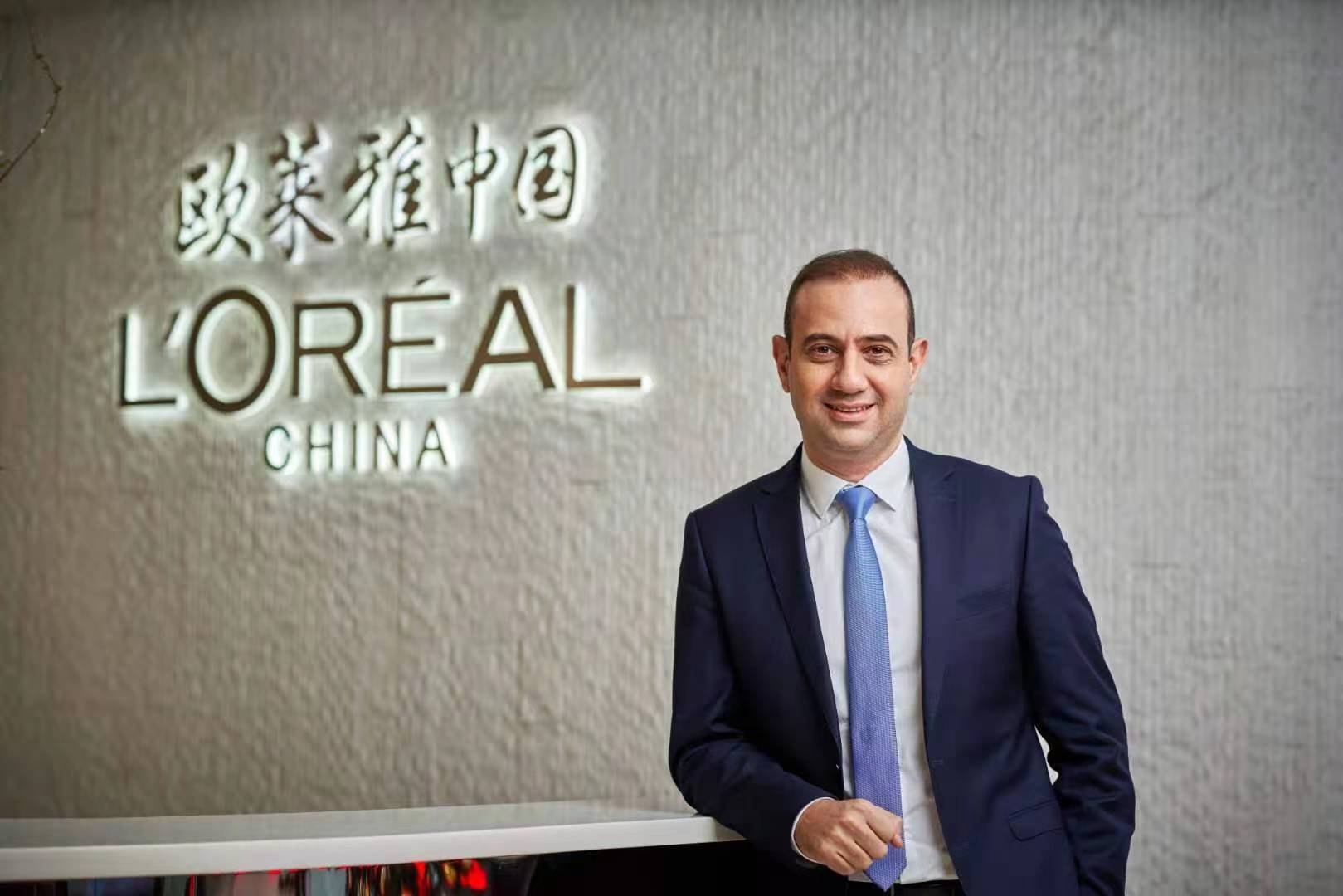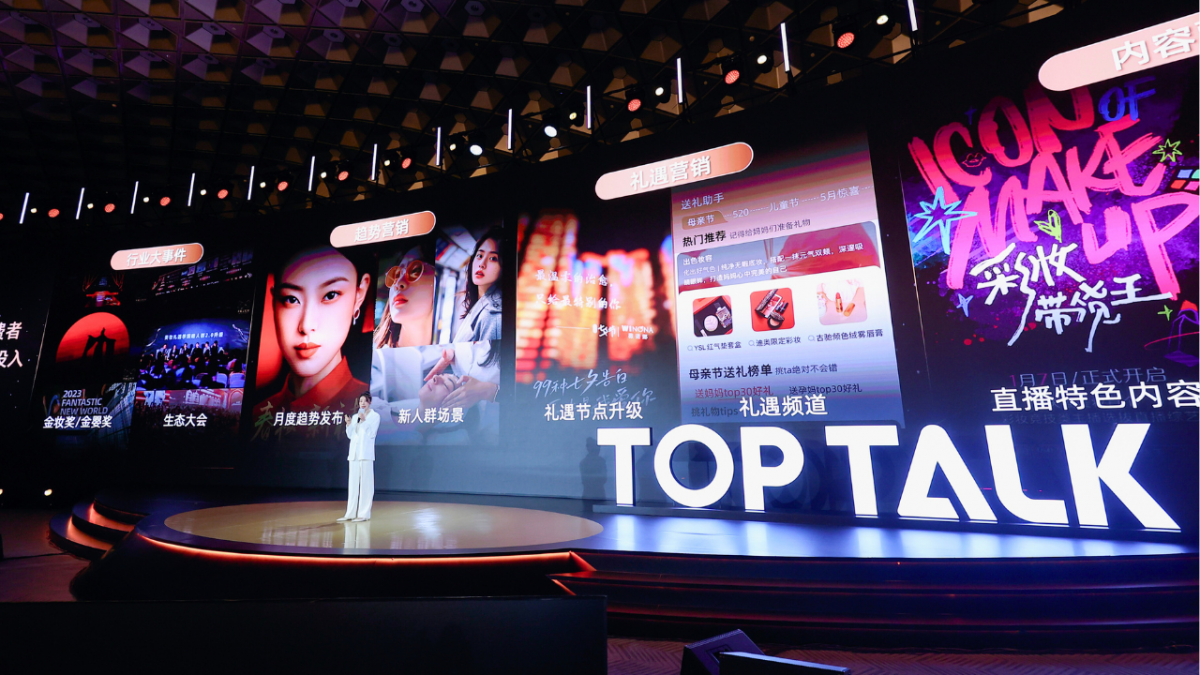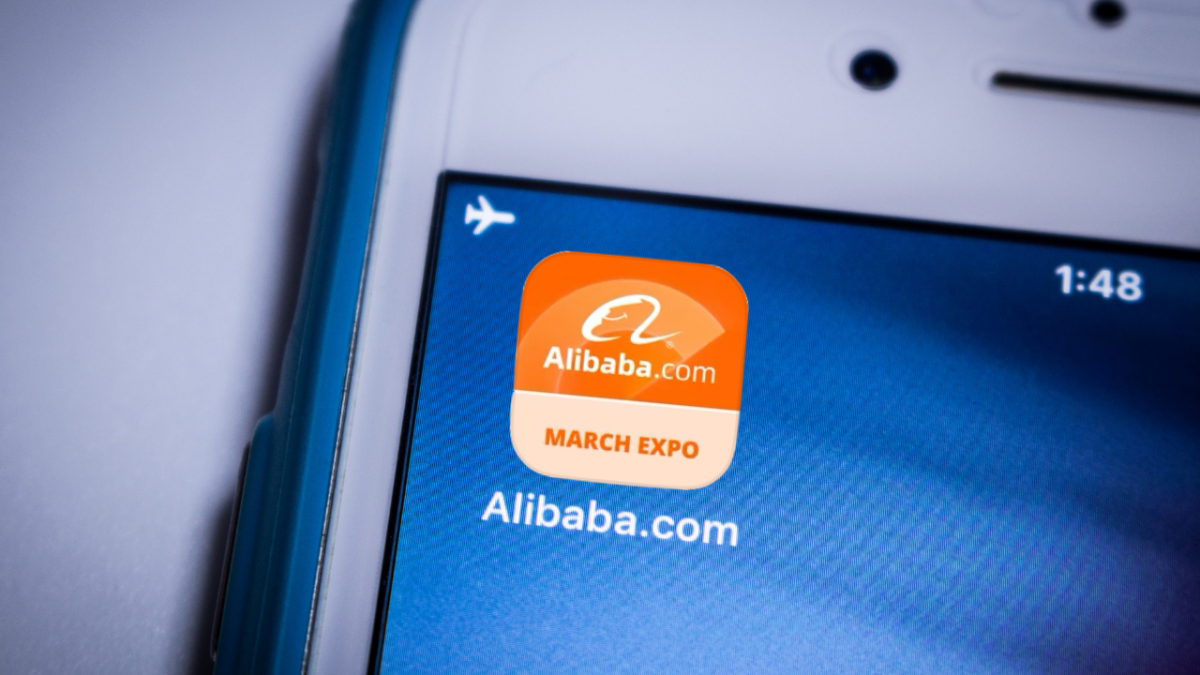
L’Oréal was the first cosmetics group to hit the RMB1 billion ($151 million) sales milestone when Alibaba Group’s 11.11 Global Shopping Festival kicked off earlier this month. But the event was more than just a sales and marketing opportunity for the world’s biggest cosmetics company, which owns labels such as L’Oréal Paris and YSL Beauté.
Fabrice Megarbane, the CEO and president of L’Oréal China, shared just ahead of 11.11 how the event has become a platform for the company to innovate on all sides – from 360-degree livestreaming and sustainable packaging to reimagining product development using real-time consumer insights.
What can Chinese consumers expect from L’Oréal this 11.11?
11.11 is a big moment of excitement for consumers. I also see it as a very good way to connect and engage with millions of consumers who are coming onto Alibaba’s platforms. We’ve prepared a lot of surprises and innovations. This year, we’re taking the opportunity to launch new, limited-edition products from our makeup brands like 3CE and Shu Uemura. Limited-edition launches resonate with consumers especially well at this time of the year. Armani and YSL also launched skincare ranges, which have had phenomenal success in this festival. Last but not least, 11.11 always offers an opportunity to bring our newly launched brands in front of consumers, such as CeraVe and Saint-Gervais Mont-Blanc.
For an established brand like L’Oréal that has participated in 11.11 numerous times why is the shopping festival still relevant?
Shopping festivals are consumer-centric events. Shoppers really wait for this moment. They want to be surprised and excited by the brands. And to stay excited, brands need to reinvent themselves every year – and if they are in China, probably nearly every month. I always feel that this festival is the perfect opportunity to really question ourselves: are we relevant enough to the consumers? Are we explaining our innovations well enough? More than ever, in this Covid period, we have realized consumers have been questioning what and why they are buying. So we have to be even more educational when it comes to our products and innovations. This is why we see livestreaming as a powerful tool that opens up new opportunities for our teams to engage directly with consumers. It gives consumers good offers and a bit of entertainment, but most importantly, education and recommendation.
Watch: L’Oreal China CEO on 11.11 innovations
Tell us more about your partnership with Alibaba.
When the partnership started in 2010, that was also the year when our CEO Jean-Paul Agon decided to put digital on top of the agenda for L’Oréal and said digital transformation will completely change the way we do business. This came around the same time we started working with Alibaba. From day one, we understood there was a perfect strategic alignment. The partnership started with putting some brands on Tmall and understanding what it takes to interact with consumers in a digital environment, from engagement to sales. And in the past 10 years, we’ve been growing, learning and transforming ourselves. I’m very proud to say that we were recognized as one of the top companies to transform digitally in China at Alibaba’s One Business Award last year.
We leverage Alibaba’s whole ecosystem to develop a deeper understanding of consumers, such as through the Tmall Innovation Center (TMIC), and offer them an elevated experience and service. We have rolled out many New Retail, or what we also call online plus offline initiatives. For example, shoppers can book treatment and styling sessions at Kérastase’s online store on Tmall. La Roche-Posay, artificial-intelligence-powered skin diagnosis service, also launched in association with Alibaba.
How has L’Oréal been able to innovate by working with Alibaba?
Consumers expect innovation on all sides. This partnership is very much based on innovation: Alibaba is an extremely innovative company, while innovation has also been at the heart of what we do at L’Oréal for a hundred years. Our founder was a chemist who innovated a way to color hair without damaging the scalp. We have since continued to innovate products for consumers, but now we’ve reached an era where innovation is important not only for products.
We are innovating new ways to discover and understand consumer insights. For example, we are working with TMIC on consumer-to-business innovations, such as L’Oréal Paris’ Revitalift product we launched last year. We found that some young consumers stay up late, either for work or to watch livestreams, and they wake up the next morning worrying that their faces would lose their glow or show signs of aging. We saw this insight and thought: what if we create a facial cream that helps consumers intensively recover their healthy skin in the middle of their sleep? This is why we also gave the product the nickname, “Midnight Cream.” From finding the insight to launching the Midnight Cream, it came together in exactly 59 days. This set a new record in product development. Now we’re continuing this journey with a lot of new projects this year, including initiatives for kids.
Livestreaming has also become mainstream and as accessible as offline stores. This is why we have been doing a lot of innovative experiments with livestreaming, such as allowing Tmall shoppers to virtually try on makeup while they watch livestreams through ModiFace’s augmented-reality feature. We also launched 360-degree livestreams in our Maybelline and Lancôme flagship stores.
What is your outlook on the Chinese market?
I think it’s a positive sign that businesses in China are returning to growth, but also for the world to know there is a hope that things will start going again when this pandemic is under control. The beauty sector has also remained very resilient. At the end of the day, consumers buy cosmetics not only to take part in social activities. It’s also about taking care about themselves and making them feel better. We’ve seen some categories, like skincare or haircare, that have seen even bigger growth than before and are still growing. It’s also important to note that we’re seeing consumers value quality and big-name brands even more now. So we’re very confident for the year to come. Already, we have seen a good recovery with a sales growth of close to 20% in the quarter ending September.
What’s next for L’Oréal in China?
We are fundamentally a consumer-centric organization because we keep adapting ourselves to the behavior of consumers. What is changing today is the interaction and engagement with consumers. Today, there is a total conversion between the online and offline. The world of tomorrow is a fully homogeneous world, so the expectation is that we are able to offer this global solution to consumers for them to interact with our brands, whether it’s online or offline. It’s about keeping in contact with them in a much homogeneous way. This way we bring value to the market and to the consumption.
Consumption will be one of the big drivers for the economic recovery in China and around the world. For L’Oréal, we feel that we have a role to play. I think what’s most important is “good consumption,” which is about having a positive impact on the lives of consumers as well as the environment. This is why we commit to sustainability and bringing quality, safe products and innovations that can really transform people’s lives. And that’s not something you can achieve alone. Alibaba was a very early partner with us on sustainability. Two years ago, we initiated our Green Parcel Project with Alibaba to reduce waste with environmentally friendly packaging. I’m very happy to report that all of the L’Oréal products sold during 11.11 this year will be shipped to consumers in green parcels. This is one of the areas where I think the partnership between L’Oréal and Alibaba could be exemplary for this good consumption concept in China.
Sign up for our newsletter to receive the latest Alibaba updates in your inbox every week.




